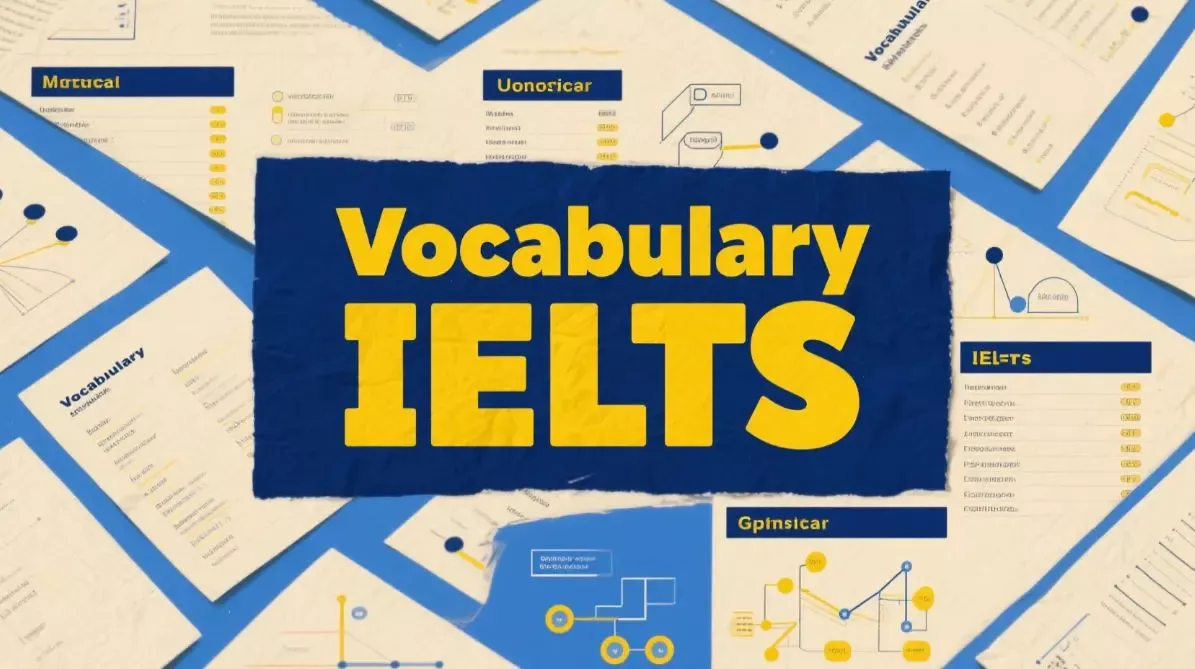Đây là bài viết luyện Writing IELTS Part 2 với chủ đề Animal cũng là chủ đề được đề cập nhiều ở các phần thi Reading, Listening, Writing và Speaking theo một cách bất kỳ.
Writing Species Migration
Species migration is a natural phenomenon, and there’s no need for humans to intervene in the movement of wildlife.
| Agree | Disagree |
|---|---|
| 1. Preservation of ecosystems: Allowing species to migrate naturally helps preserve the integrity of ecosystems. It enables the natural balance of predator-prey relationships and maintains biodiversity. | 1. Human-induced habitat fragmentation: Human activities such as urbanization, deforestation, and infrastructure development often disrupt natural migration routes, leading to habitat fragmentation. This can hinder species from migrating as they normally would. |
| 2. Adaptation to changing environments: Natural migration allows species to adapt to changing environmental conditions, such as climate change or shifts in food availability. This adaptability is crucial for the long-term survival of species. | 2. Human-induced climate change: Human activities contribute to climate change, which can alter habitats and force species to migrate to new areas to survive. However, the pace of climate change may exceed the natural migration abilities of some species, leading to population decline or extinction. |
| 3. Genetic diversity: Natural migration facilitates gene flow between populations, promoting genetic diversity within species. This diversity enhances resilience to diseases and environmental changes, ensuring the long-term viability of populations. | 3. Invasive species: Without intervention, invasive species may spread unchecked to new areas, disrupting native ecosystems and outcompeting indigenous species for resources. Human intervention may be necessary to control the spread of invasive species and protect native biodiversity. |
| 4. Ecosystem services: Natural migration contributes to the provision of ecosystem services such as pollination, seed dispersal, and pest control. These services are essential for human well-being and agricultural productivity. | 4. Conservation efforts: Human intervention, through measures like wildlife corridors and protected areas, can facilitate safe migration routes for species, enabling them to move more freely across landscapes and ensuring their survival in the face of human-induced threats. |
In conclusion, while natural migration is indeed a vital process for maintaining ecosystem health and species survival, human intervention may be necessary in certain circumstances to mitigate the negative impacts of human activities and ensure the continued resilience of ecosystems. Balancing both approaches is crucial for effective conservation and biodiversity management.
Geological Transformations
Geological transformations happen over time, and there’s no justification for humans to interfere in these natural processes
| Agree | Disagree |
|---|---|
| 1. Respect for Natural Processes: It’s important to recognize the inherent value and beauty in natural geological processes. Interfering with them may disrupt delicate balances and ecosystems. | 1. Mitigating Natural Disasters: Human intervention can be crucial in mitigating the impact of natural disasters such as earthquakes, volcanic eruptions, or landslides, which can cause immense harm to human lives and infrastructure. |
| 2. Preservation of Geological Heritage: Allowing natural processes to unfold without interference can preserve geological formations and landscapes for future generations to appreciate and study. | 2. Resource Management: Human intervention in geological processes can be necessary for sustainable resource management, such as controlling erosion to protect soil fertility or managing groundwater resources. |
| 3. Promoting Biodiversity: Unaltered geological processes can support diverse habitats, promoting biodiversity. Human interference may disrupt these habitats, leading to loss of species diversity. | 3. Infrastructure Development: Human activities often require altering natural landscapes, such as building roads, dams, or cities. While this may disrupt natural processes, it’s essential for societal development and economic growth. |
| 4. Ethical Considerations: Some argue that interfering in natural processes violates ethical principles by imposing human will on non-human systems. | 4. Climate Change Mitigation: Addressing climate change, a significant geological process influenced by human activities, requires deliberate intervention and mitigation efforts to reduce greenhouse gas emissions and adapt to changing conditions. |
Conclusion: While there are valid arguments for both agreeing and disagreeing with the idea of interfering in natural geological processes, it’s crucial to strike a balance between respecting the natural world and addressing human needs and challenges. Preservation of natural beauty and ecological integrity should be balanced with the necessity of managing resources sustainably and safeguarding human lives and infrastructure from natural hazards. Adaptive and responsible management strategies that consider both human and natural systems are essential for a harmonious coexistence with the Earth’s geological processes.
Ocean Currents
Ocean currents naturally change and shift, and there’s no reason for humans to prevent these natural occurrences
| Agree | Disagree |
|---|---|
| Ocean currents are part of natural processes that regulate the Earth’s climate and ecosystem. Disrupting them could have unforeseen consequences, potentially leading to ecological imbalances. | Human activities, such as climate change and pollution, are significantly altering ocean currents, causing disruptions to marine ecosystems, weather patterns, and coastal communities. Taking steps to mitigate these disruptions is crucial for maintaining environmental stability. |
| Allowing ocean currents to shift naturally can contribute to biodiversity by facilitating the movement of nutrients and species across different regions, promoting a healthy marine ecosystem. | Unchecked changes in ocean currents can exacerbate the impacts of climate change, leading to more frequent and severe extreme weather events, sea-level rise, and disruptions to marine life and habitats. |
| Intervening to control ocean currents could have unintended consequences and may not be feasible on a large scale. It’s often more practical and safer to adapt to natural changes rather than attempting to manipulate them. | While natural variations in ocean currents are inevitable, human-induced alterations are accelerating at an alarming rate, surpassing the ability of ecosystems to adapt naturally. Addressing the root causes of these alterations is essential to prevent catastrophic consequences for both marine and human populations. |
Conclusion: While it’s important to recognize the role of natural variability in ocean currents, the disagreement column highlights the significant impact of human activities on these currents and the ecosystems they support. Balancing the need to respect natural processes with the imperative to address human-induced disruptions is crucial for safeguarding the health of marine environments and mitigating the effects of climate change. Simply allowing ocean currents to shift without considering the consequences of human influence could lead to detrimental outcomes for both the environment and society. Therefore, proactive measures to reduce human impacts on ocean currents are necessary to ensure the resilience and sustainability of marine ecosystems.
Lunar Phases
Lunar phases change naturally, and there’s no need for humans to intervene in this celestial process.Plate Tectonics Plate tectonics shape Earth’s surface naturally, and there’s no justification for humans to interfere with this geological process.
| Agree | Disagree |
|---|---|
| Lunar phases are natural phenomena governed by celestial mechanics. Humans have no direct control over these processes. | Human intervention is not required for lunar phases to occur, as they are driven by the positions of the Earth, moon, and sun. |
| Lunar phases have been occurring for billions of years without human interference, indicating their natural occurrence. | Attempting to intervene in lunar phases would be futile and impractical, as it would require immense energy and resources without any tangible benefit. |
| Interfering with lunar phases could disrupt natural ecosystems that rely on lunar cycles for various biological processes, such as animal behaviors and tidal patterns. | The natural occurrence of lunar phases enriches human culture, spirituality, and scientific understanding of the universe. Intervening in such processes could diminish these aspects. |
| There is no practical or ethical justification for humans to interfere with the natural rhythm of lunar phases. | Humanity should prioritize understanding and preserving natural phenomena rather than attempting to control or manipulate them for arbitrary reasons. |
| Respect for natural processes, including lunar phases, fosters a deeper connection to the cosmos and promotes humility in the face of the vastness and complexity of the universe. | Attempting to control natural phenomena like lunar phases could lead to unintended consequences and disruptions in the delicate balance of the Earth-moon-sun system. |
Conclusion: While it’s evident that lunar phases change naturally without human intervention, the argument against interfering in this celestial process is strong. Respect for natural phenomena like lunar phases not only acknowledges the intricacies of the cosmos but also emphasizes the importance of preserving these processes for scientific, cultural, and ecological reasons. Disrupting such natural rhythms may lead to unforeseen consequences and could detract from humanity’s appreciation of the universe. Therefore, the stance leaning towards agreeing with the statement holds more weight, advocating for non-interference in the natural occurrence of lunar phases.
Plate Tectonics
Plate tectonics shape Earth’s surface naturally, and there’s no justification for humans to interfere with this geological process.
| Agree | Disagree |
|---|---|
| 1. Plate tectonics are natural geological processes that have shaped Earth’s surface over millions of years. | 1. Human intervention in geological processes can be justified for various reasons, such as mitigating the impact of natural disasters like earthquakes and volcanic eruptions. |
| 2. Interfering with plate tectonics may have unpredictable and potentially disastrous consequences, such as triggering earthquakes or volcanic activity. | 2. Human activities, such as land development and mining, already interfere with Earth’s natural processes, so managing these activities can help minimize their negative impacts. |
| 3. Allowing plate tectonics to operate without human interference may promote ecological balance and the natural evolution of geological features. | 3. Advancements in technology and scientific understanding enable humans to monitor and predict geological events, providing opportunities to intervene in ways that can protect lives and property. |
| 4. Intervening with plate tectonics could lead to unintended consequences that are irreversible, affecting not only the environment but also human populations. | 4. Through strategic planning and regulation, humans can manage their impact on geological processes while still allowing for sustainable development and resource utilization. |
Conclusion: While it’s true that plate tectonics are natural processes that have shaped Earth’s surface for millions of years, the disagreement column suggests that there are circumstances where human intervention may be justified. This intervention could involve monitoring and mitigating the impacts of geological events, managing human activities that interact with geological processes, and balancing the need for development with environmental preservation. Ultimately, a nuanced approach that considers both natural processes and human intervention may be necessary to ensure the safety and well-being of both the planet and its inhabitants.
Đọc lại bài trước: Writing IELTS theo chủ đề Animal part 1.















